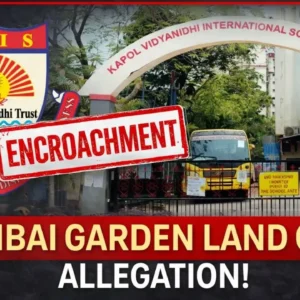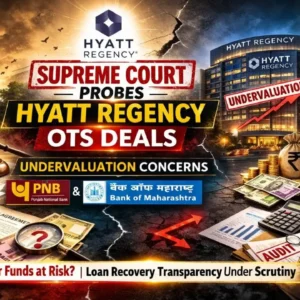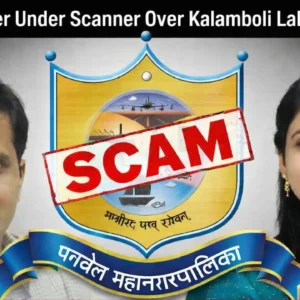Delhi HC orders eviction of GMR Group CMD from Pushpanjali Farms residence
• Unregistered Lease Deed Proves Costly for GMR’s DIAL
• DLR Act Defense Fails as Court Cites Non-Agricultural Use
• Lease Loophole Leads to Loss
Unmesh Gujarathi
Sprouts News Exclusive
Contact: +91 9322755098
- Delhi HC orders eviction of GMR Group CMD from Pushpanjali Farms residence
- • Unregistered Lease Deed Proves Costly for GMR’s DIAL
- • DLR Act Defense Fails as Court Cites Non-Agricultural Use
- • Lease Loophole Leads to Loss
- Delhi High Court Evicts GMR Group DIAL from ₹115 Crore Farmhouse: Unregistered Lease Deed Leads to Legal Defeat
- Background of the Dispute: A Prime Property at Stake
- Unregistered Lease Deed: A Fatal Legal Flaw
- GMR’s Defense: Agricultural Land Claim and Lease Extensions
- Court’s Analysis: Non-Agricultural Use and Registration Mandate
- Implications for Corporate Leasing and Property Transactions
- Representation and Final Orders
The Delhi High Court has evicted DIAL and GMR Group from a ₹115 crore Bijwasan farmhouse, ruling their unregistered lease deed invalid. The court held them to be month-to-month tenants, whose tenancy was rightfully terminated. The property, used as the CMD’s residence, must be vacated immediately following the court’s decree.
Delhi High Court Evicts GMR Group DIAL from ₹115 Crore Farmhouse: Unregistered Lease Deed Leads to Legal Defeat
In a significant ruling, the Delhi High Court has directed Delhi International Airport Limited (DIAL) and other GMR Group entities to vacate a luxury farmhouse in Bijwasan’s Pushpanjali Farms, which served as the official residence of the company’s Chairman and Managing Director. The court held that the lease deed relied upon by the defendants was unregistered and unenforceable, rendering them month-to-month tenants liable for eviction upon termination notice. The decision underscores the critical importance of registration in lease agreements under Indian property law.
Click Here To Download the News Attachment
Background of the Dispute: A Prime Property at Stake
The dispute centered on a 3.81-acre estate featuring a 30,000 sq ft dwelling, landscaped lawns, and an outhouse. In April 2020, DIAL and its affiliates leased 2.45 acres of this property, including the main building, from the then-owner, Indus Sor Urja, through an unregistered deed. The monthly rent was initially fixed at ₹39.67 lakh plus GST, later revised to ₹45.62 lakh. The defendants claimed significant investments in amenities, including a swimming pool, to tailor the farmhouse for the CMD’s use.
Unregistered Lease Deed: A Fatal Legal Flaw
On May 20, 2024, Indus Sor Urja sold the property to Onkar Infotech for ₹115 crore via a registered sale deed. DIAL acknowledged the transfer and even redirected rent payments and a security deposit of ₹2.72 crore to the new owner. However, Onkar Infotech contested the lease’s validity, citing Sections 17 and 49 of the Registration Act, 1908, and Section 107 of the Transfer of Property Act. The company argued that the unregistered deed was void, making the defendants month-to-month tenants under Section 106 of the TP Act. On July 7, 2024, Onkar issued a 15-day termination notice and refused subsequent rent cheques, demanding vacant possession.
GMR’s Defense: Agricultural Land Claim and Lease Extensions
The GMR companies resisted eviction, claiming the land was agricultural and thus governed by the Delhi Land Reforms Act (DLR Act), 1954, which prohibits civil eviction suits. They also alleged lease extensions until 2028 and accused Onkar of concealing its status as “bhumidhar” (landowner) in revenue records. An application was filed to reject the plaint, arguing the court lacked jurisdiction.
Court’s Analysis: Non-Agricultural Use and Registration Mandate
Justice Subramonium Prasad dismissed these arguments, emphasizing the property’s explicit non-agricultural use. The court noted the presence of a residential dwelling, swimming pool, and lawns, stating, “once land has been put to complete non-agricultural use, the DLR Act is not applicable.” On the lease’s validity, the court cited Supreme Court precedents to reaffirm that unregistered leases cannot evidence tenure or extensions. The judgment clarified that the defendants, as month-to-month tenants, were liable for eviction after lawful termination via notice.
Implications for Corporate Leasing and Property Transactions
This ruling reinforces the necessity of registered lease deeds for properties exceeding one-year tenures. It also highlights risks for corporations relying on unregistered agreements, especially involving high-value assets. The decision may prompt stricter due diligence in real estate transactions, particularly amid corporate acquisitions and ownership transfers. Legal experts suggest the judgment could influence similar disputes involving agricultural land repurposed for non-agricultural use.
Also Read: Sahyadri Hospital Licence Suspended After Couple Dies in Liver Transplant.
Representation and Final Orders
The plaintiff was represented by Senior Advocates PS Patwalia and Dayan Krishnan, along with a team of advocates. The court decreed possession in favor of Onkar Infotech, rejecting the defendants’ plea to dismiss the plaint. The ruling avoids a full trial, citing the defense’s lack of merit under prevailing law.
The Delhi High Court’s decision serves as a stark reminder of the legal pitfalls of unregistered leases and the primacy of actual land use over historical classifications. For DIAL and GMR, the loss underscores the need for robust legal frameworks in corporate property management. As urban expansion intensifies land use conflicts, this case could become a benchmark for interpreting registration and tenancy laws in India.



















